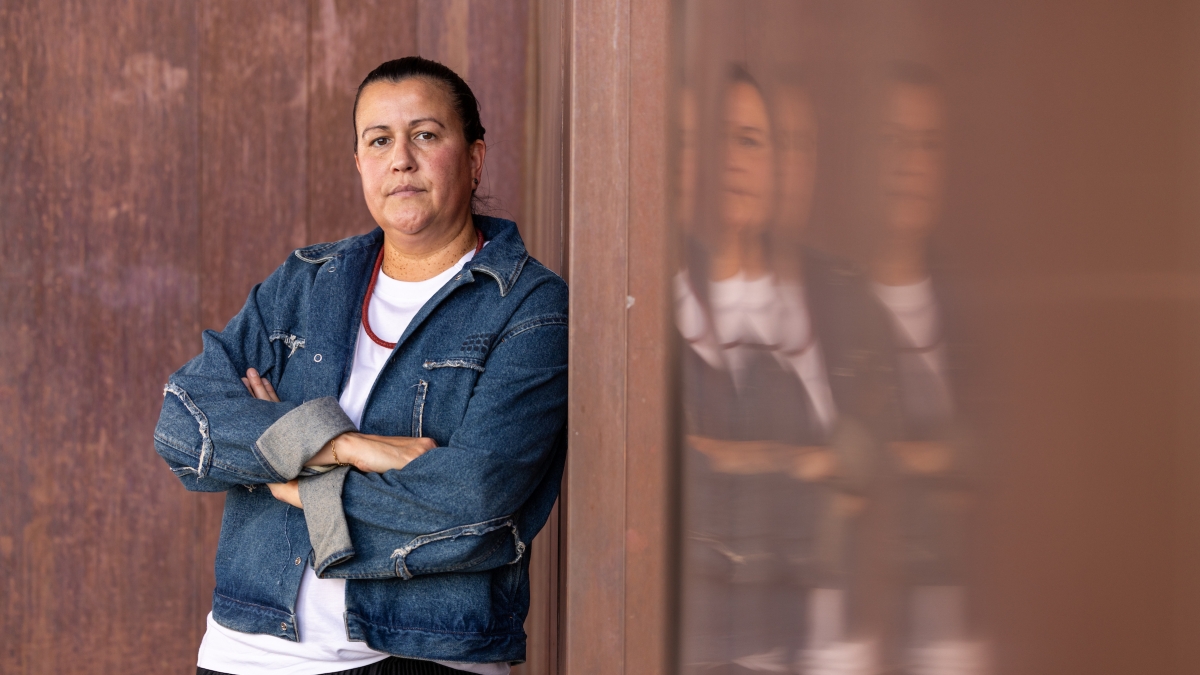
- Details
- By Scott Bordow for ASU News
Arizona State University English Professor Natalie Diaz has added to her list of accomplishments by being named a Freedom Scholar award winner from the Marguerite Casey Foundation.
The foundation, according to its website, supports academic leaders “whose research provides critical insight from and to social justice leaders and whose ideas encourage us to imagine how we can radically improve our democracy, economy and society.”
“Natalie Diaz’s inclusion in the 2024 Freedom Scholars cohort is a testament to her profound impact on both literature and social justice,” said Zeeba Khalili, vice president of grantmaking and external affairs for the foundation. “Her innovative work not only enriches our understanding of Native and Indigenous experiences but also advocates for systemic change through a deep engagement with language and culture. We are thrilled to see how her continued exploration and activism will shape academic discourse and drive meaningful progress in our society.”
Diaz, who won the 2021 Pulitzer Prize for Poetry for her book “Postcolonial Love Poem,” called the award a “pretty lucky thing” that reflects on the teaching and research ASU has allowed her to do.
“For me, it feels aligned with why I’ve come into this university,” Diaz said. “I’m not your typical university professor. I played basketball for most of my life (Diaz reached the NCAA Final Four as a freshman guard at Old Dominion before playing professionally overseas). I’m very involved in things like Native language recovery, which aren’t typically seen as scholarly endeavors.
“So for me, this is a great opportunity to say there is a place that offers support and believes we can take our communities' endeavors and goals and bring them into a university setting.”
In addition to her interest in Native language recovery, Diaz, who grew up on the Fort Mojave Indian Reservation in Needles, California, has worked with other authors and organizations like the Ford Foundation, Haymarket Books and the Mellon Foundation to provide fellowships to incarcerated writers.
“It’s a community that feels like one of my communities,” Diaz said. “I’ve had siblings in and out of the prison system. I’m from a reservation, which is a one-of-a-kind incarcerated system. I’ve had the luck, the support and the passion to kind of keep my imagination tilted toward those spaces.”
Diaz said she can’t imagine working at any other university than ASU.
“I think one of the things about this (award) that’s different," she said, "is it’s (signifying that) all of the ways you’re trying to work within the institution to make changes, be they small or large, (are) trying to fight certain kinds of invisibility and to create certain kinds of community that are maybe quieted in a university or that maybe institutions don’t like.
“But I’ve never had that trouble here at ASU. I can bring in all of the things that I fight for in my own life.”
Each Freedom Scholar receives a one-time $250,000 award. Diaz is giving $15,000 to the Gaza Scholarship Initiative for Displaced Students. The initiative provides financial support to Gazan students who want to attend college in the U.S., covering expenses such as accommodation, meals, textbooks, registration fees, partial tuition, visa applications, evacuation expenses, air travel and other logistical needs.
Diaz said that with the rest of the money, “we'll figure out what are some of the best ways to kind of help people.”
"The Department of English is proud to count Professor Diaz as our colleague,” said Manushag “Nush” Powell, department chair. “Her unfailing commitment to art, to justice and to her students represents the best of our hopes and aspirations, and we congratulate her with warmth and applause for this honor."
Help us defend tribal sovereignty.
At Native News Online, our mission is rooted in telling the stories that strengthen sovereignty and uplift Indigenous voices — not just at year’s end, but every single day.
Because of your generosity last year, we were able to keep our reporters on the ground in tribal communities, at national gatherings and in the halls of Congress — covering the issues that matter most to Indian Country: sovereignty, culture, education, health and economic opportunity.
That support sustained us through a tough year in 2025. Now, as we look to the year ahead, we need your help right now to ensure warrior journalism remains strong — reporting that defends tribal sovereignty, amplifies Native truth, and holds power accountable.
 The stakes couldn't be higher. Your support keeps Native voices heard, Native stories told and Native sovereignty defended.
The stakes couldn't be higher. Your support keeps Native voices heard, Native stories told and Native sovereignty defended.
Stand with Warrior Journalism today.
Levi Rickert (Potawatomi), Editor & Publisher
